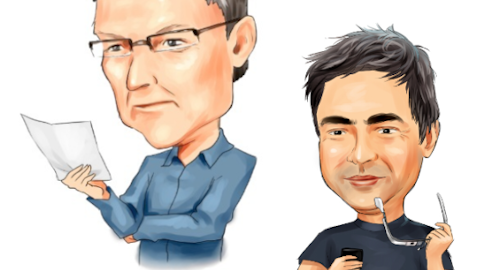Right now, good news is in short supply for Apple Inc. (NASDAQ:AAPL). Investors haven’t been enthused with the announcement of iOS 7, and shares are down almost 24% since the beginning of the year.
But the latest sting to Apple Inc. (NASDAQ:AAPL) comes from Europe, where the company’s iPhone is falling behind Android’s ongoing dominance.
Tapping out in Europe
According to IDC, Western European smartphone sales have been slowed by the sluggish economic growth in countries such as Great Britain, Italy, France, Spain and Germany. But even though Western Europe is experiencing the lowest smartphone growth rate since 2004, the Android OS made some big gains — while Apple Inc. (NASDAQ:AAPL) fell back.
Android accounted for 70% of smartphone sales in Western Europe in the first quarter of this year, up about 10% from a year ago. Meanwhile, Apple Inc. (NASDAQ:AAPL) took about 17.8% of smartphone sales over the same time period.
The iPhone’s problem in Europe may have more to do with the economy than with features or specs. In April, the CEO of France Telecom SA, Stephane Richard, told Bloomberg that Europeans weren’t buying iPhones because the phones are too expensive. “Selling a phone for $600 is getting more and more difficult,” he said.
This leads us to the bigger question of whether a cheaper iPhone could be a game-changer in Europe. The rumored device has been viewed as a key component for Apple Inc. (NASDAQ:AAPL)’s success in developing markets, but it appears the company may need it for established markets as well.
The smartphone operating systems that are making the most gains are the ones being sold on more inexpensive devices. According to Kantar Worldpanel data, Windows Phone increased its market share by more than 100% in the U.K. in part because of low-cost Nokia Corporation (ADR) (NYSE:NOK) phones such as the 520, 620 and 720. At the same time, Nokia Corporation (ADR) (NYSE:NOK) also lost some market share in Italy over the same period because lower-cost Android phones from Sony Corporation (ADR) (NYSE:SNE) and LG came to the market.
In developing markets, Nokia Corporation (ADR) (NYSE:NOK) will battle cheap Androids with its new Asha line, but it’s evident that Android’s dominance is hitting both low- and high-end markets. The little green droid takes up 90% of India’s smartphone market share, and Europe seems to be moving in the same direction.
Battling on every side
Aside from poor economic conditions and cheap Android phones, Apple Inc. (NASDAQ:AAPL) is also dealing with archrival Samsung in Europe. According to Kantar, the South Korean company sold 50% of smartphones in Europe during the first quarter of this year. With smartphone penetration nearing critical mass in Europe, it’s high time Apple changed its strategy in the region.
This Fool thinks a cheaper iPhone is the best way to gain back some of the lost market share in Europe and start fighting the uphill battle against Android and Samsung. Apple has enjoyed selling millions of iPhones worldwide, but if European smartphone consumers continue moving in the direction they’re going now, you can expect Apple to be pushed out even more.
Not finished yet
Though the iPhone may be losing European market share, Apple isn’t likely to take the walloping lying down. The new iOS 7 may held turn the tide for the iPhone once it comes out this fall, and an updated iPhone may help push Android back as well.
But what could really change the game for Apple’s stock right now is if it releases a completely new product all together. The company has a history of cranking out revolutionary products … and then creatively destroying them with something better.
The article The Thorn in the iPhone’s Side: Europe originally appeared on Fool.com.
Fool contributor Chris Neiger has no position in any stocks mentioned. The Motley Fool recommends and owns shares of Apple.
Copyright © 1995 – 2013 The Motley Fool, LLC. All rights reserved. The Motley Fool has a disclosure policy.





